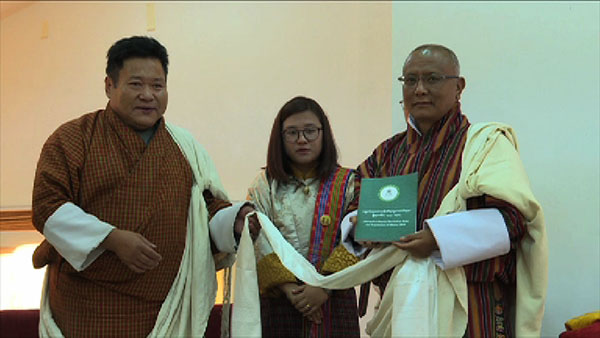 Bhutan Alternative Dispute Resolution (ADR) Centre has launched its Rules and Regulations and website yesterday. With the launch, it is expected to improve service delivery to its clients and arbitrators. The centre deals with civil cases which are commercial in nature.
Bhutan Alternative Dispute Resolution (ADR) Centre has launched its Rules and Regulations and website yesterday. With the launch, it is expected to improve service delivery to its clients and arbitrators. The centre deals with civil cases which are commercial in nature.
Earlier in absence of ADR Centre, the Construction Development Board was authorised to facilitate the arbitration. In May last year, the centre was established as an alternative to court, and disputes can be settled faster with lesser formalities. And with the increasing clients, the need for the rules and regulations was felt necessary.
“In the rules and regulations, there are more details including the downloadable forms and all information are provided comprehensively. I am pretty sure that our arbitrators as well as ourselves and the stakeholders and then parties to the dispute will be greatly benefited these rules and regulations,” Chimi Dorje, the Chief Administrator of ADR Centre, said.
Along with the launch of rules and regulations, the centre revised the arbitration fees. Earlier, both parties should pay Nu 20,000 while registering cases. And the centre used to pay Nu 10,000 each to two arbitrators and a presiding arbitrator appointed by the arbitrators or by the centre. The revised fee will help to attract experienced arbitrators who can provide better arbitration services.
“To settle a dispute, one needs ample of time. They have to read and understand bulky documents, they have to do some analysis and have to study a lot, so this work and payment are not going to commensurate to the amount of work they have to do. ADRC will also be revising arbitration fee which will now start from Nu 15,000 per arbitrator and then the upper cap is Nu 130,000, so it depends on the detriment amount to dispute,” Chimi Dorje added.
So far the centre has received over 60 cases.
The Alternative Dispute Resolution Act of Bhutan was enacted in 2013. It is aimed to serve a neutral, efficient and reliable dispute resolution service. It is also to carry out administrative and secretarial functions as may be appropriate for the dispute resolution proceedings at the request of the parties among others.










